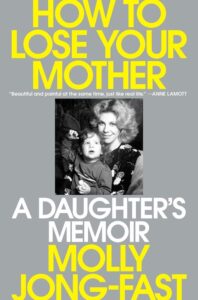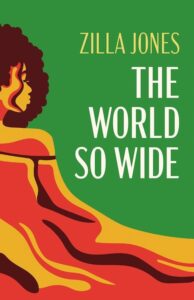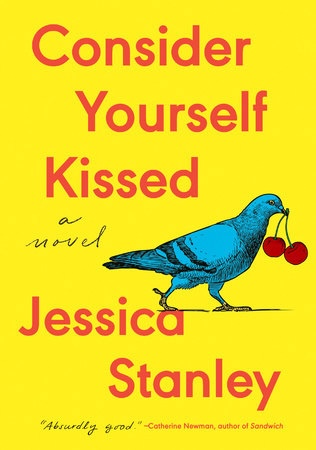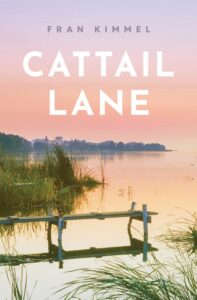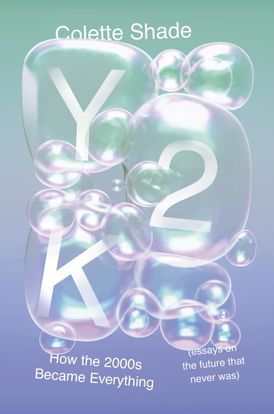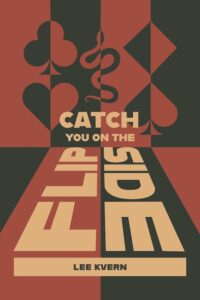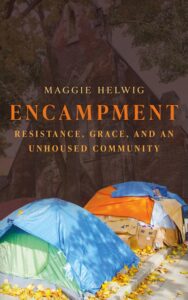June 11, 2025
How to Lose Your Mother, by Molly Jong-Fast
I saw myself in Molly Jong-Fast’s memoir, How to Lose Your Mother, specifically the part where she writes about how strangers project onto her their feelings about her novelist mother, a burden that she has born in remarkably good spirits, all things considered. When I published an essay about her mother’s iconic 1973 novel Fear of Flying back when, I tagged Jong-Fast in a Twitter post, and I think she even shared it. Although in the years since then, Jong-Fast has come to mean an awful lot to me as a person in her own right, in the last five years that I’ve been listening to her podcast, which continues to be a balm to my anxiety and has helped me make (some) sense of the chaos of our era, but then it turns out that making sense of chaos is something Molly Jong-Fast has been doing for a very long time.
And this novel is a document of that process, a memoir of her childhood born to famous artistic parents for whom “parenting” was not a verb, and of the neglect she experienced as her mother chased fame and ignored her own addictions, and also a memoir of Jong-Fast’s very difficult year as her mother’s dementia advanced and her husband was diagnosed with pancreatic cancer, among other heartbreaks and calamities. Sober since age 19, Jong-Fast has designed a very different life from her mother’s, marrying at 24 and finding joy as the parent to three children, and now as her mother begins to decline (and her stepfather is dying from Parkinson’s concurrently), Jong-Fast resents the time she’s forced to spent caring for parents whom she feels never cared for her.
I really appreciated this honest portrayal of the realities of eldercare, and Jong-Fast’s awareness of her limits, her refusal to be a martyr. I also love the complexity of the mother-daughter relationship she constructs, that it’s all love all the same, even with the failures of mother and daughter both at various points in the relationship. That love is a multitudinous thing, but also that person has the right to own their own soul, their own story, which was the point of Fear of Flying after all, a lesson that perhaps is just one of many gifts that Molly Jong-Fast inherited from her imperfect mother.
June 10, 2025
The World So Wide, by Zilla Jones
St. Georges, Grenada. October 1982. Celebrated Canadian opera singer Felicity Alexander has arrived in her mother-country to be part of a showcase of Grenadian talent put on by the Caribbean nation’s revolutionary government whose Marxist doctrine is seen as a threat by the US. Although Felicity’s own reasons for being there are personal—almost 20 years before she had been at university in London with the man who is now Prime Minister of Grenada, and with his deputy, who’d been Felicity’s lover. And soon after her arrival, a rival of the Prime Minister attempts a coup, Felicity being roped into the crew who is put under house arrest, and all the while rumours are swirling that the United States is about to invade.
Zilla Jones’ debut novel, The World So Wide, moves between the tense days under house arrest and Zilla’s experience growing up on Winnipeg, her immigrant mother reserved in her affecting but working hard to give her talented daughter the musical education she deserves, which leads to Felicity receiving a scholarship to the Guildhall School of Music in London, UK. More than anything else, Felicity is intent on her career success, and has no compunction about pursuing it, or liberating herself from her religious mother’s expectations, and also having sex whenever she cares to, which is very subversive for a woman in the 1960s, and especially for a Black woman. Once she gets to England, Felicity also finds that her Blackness is under debate in the company of other students from Caribbean in a way it had never been in Canada, where she was always firmly othered. Never really belonging anywhere properly, she becomes more determined to create a singular place in the world for herself.
Felicity knows exactly who she is, and does not bend to convention, which expects her to submit to marriage and motherhood. As befits an opera singer, her emotions and desires in the novel are outsized, larger than life, which makes for compelling and dramatic reading, the only drawback that secondary characters can seem slight in comparison, their own emotions and desires flattened. The novel does a terrific job, however, of using her personal story to bring history (albeit fictionalized) to life, illuminating the fascinating story of Grenada’s revolutionary government, which deserves to be better known.
June 3, 2025
Consider Yourself Kissed, by Jessica Stanley
I periodically wonder if, had I’d lived through any other period from my thirties into my mid-forties, I might look less ravaged by time right now. If I might resemble that woman I was in photographs until around 2013, whose hair was dark brown, her skin unlined, decidedly youthful. And while I have absolutely no complaints about my grey hair and wrinkles (I like how I look and I’ve known too many women who would have given anything to win their grey hair and wrinkles, but didn’t get the chance), I do wonder if the last decade and a bit has been just a bit EXTRA in terms of things that might age one seemingly overnight.
And this is the period that Jessica Stanley documents in her novel Consider Yourself Kissed, the story of a marriage set right close to the eye of the storm—Coralie is a Australian expat who falls in love with divorced dad and political journalist Adam after she rescues his small daughter when she falls into a London pond, and dropped into his world Coralie finds herself BELONGING for perhaps the first time in her life, after a peripatetic childhood, ensconced in a life that is rich and full. But maybe too full? Is there such a thing?
Against a tumultuous decade in British politics (during which Adam’s star only rises), including Brexit and the nightmare of five different Tory Prime Ministers, capped off with a worldwide pandemic, we see Coralie trying to balance the demands of motherhood and marriage with her own career, and failing enough that she feels pretty bad about all of it, all the while neglecting the creative dreams she stuffed in a drawer when she met her husband who had ambition enough for both of them.
Consider Yourself Kissed (the title comes from how a character in Mary McCarthy’s THE GROUP signs letters to his girlfriend, a literary nod to perfunctory love) reminds me of Nora Ephron’s Heartburn, which is pretty much the highest praise a critic can offer to a comic novel bridging the political and domestic. It’s a that book that shows how women ARE that bridge, making the lives of seemingly important men possible, mapping out quotidian details while their husbands are charting epic tales and being celebrated, while these wives stay quiet in the background. Except that Coralie reaches a point where she just can’t do it anymore, which is the moment we find her at when the novel begins, and to explain how she got there, she has to go back to the beginning…
Charming, funny, touching, and so engaging it’s almost exhausting (because WHAT A TIME IT’S BEEN), Consider Yourself Kissed is a complicated love story, and absolutely a delight.
May 29, 2025
Cattail Lane, by Fran Kimmel
If the warm and gorgeous cover of Fran Kimmel’s Cattail Lane invites you in, then you’re likely going to love this book, a story of unconventional family and community that begins with Nick, aimless and drifting, receiving the news out of nowhere that he has a 14-year-old son, Billy, and that he’s been charged with the boy’s care now that his grandmother’s dementia has progressed where she needs to enter a care home. Both Billy and his grandmother, Evie, come to live in Nick’s small town, not far from the shores of the lake he grew up beside, and where he made a mistake years ago that he has yet to atone for.
Billy is resentful and standoffish, and no wonder. He seeks solace in visits with his grandmother in the dementia ward where she lives now, and where he’s drawn to Sarah, who works there, and whom Nick is drawn toward too, though for different reasons. With Sarah’s support, Billy and his artist grandmother begin a project to enliven the halls of the dementia ward with murals of nature (drawn from Nick’s photographs of the lake’s short and wetlands), and it’s a project that changes the atmosphere of the ward and shows Billy that he might be able to find a way to belong in his new life, and with Nick.
There are no straightforward villains in this novel (though a few contenders for the title, it’s true), instead a bunch of flawed and broken people who’d like to be trying their best, but can’t always manage to pull it off, which is everyone, from time-to-time. And in the generous world of this novel, redemption is possible, goodness is just beneath the core, and beauty is everywhere, if you only have the eye to see it.
May 28, 2025
Y2K: How the 2000s Became Everything, by Colette Shade
Unlike my children—whose precision in understanding their respective cohorts (Z and Alpha) and how they’re defined by them is more than ridiculous considering that they’re two people with the same genes who share a bunkbed—I’ve never had a sense of my own place on the generational spectrum. Born in 1979, I was 11 when Douglas Coupland published Generation X in 1991, and certainly never supposed that it was a story about me. And then when the “millennials” discourse arrived about 15 years later (mainly denigrating), I didn’t think that was me either. Truly on the cusp, it’s been hard to measure (and these things are hardly scientific anyway), but I’ve recently come down on the millennial side of it all, which is pretty undeniable since my all-time favourite song is “I Want It That Way.”
Y2K looms large in my mind, not the predicted chaos necessarily (I was too young and self-centred to properly understand that anything bad could ever happen in my world), but the era, an era that Colette Shade marks as 1997 to the 2008 economic meltdown at which points dreams of a future that seems like THE future were officially over. And her book about that era is partly an exercise in nostalgia, but only a little bit. The rest of it a biting cultural analysis of the Y2k era as a period of neoliberal excess, the promise of infinite growth and infinite good times, and bubble that—like the inflatable chair she convinced her mother to buy her at Target—was only ever going to burst.
Shade’s essay collection Y2K: How the 2000s Became Everything joins a shelf of great nonfiction that I’ve been reading this year (John Ganz’s When the Clock Broke; At a Loss for Words, by Carol Off), books which answer the bewildering question of “How did we get here?” To a cultural moment of nastiness, inequality, technofascism, and deep polarization, where truth is relative, and the climate just gets hotter. And Shade points to the Y2K era as one in which the seeds of all of this were planted, her fun cultural commentary connected to a broader and cutting economic and political analysis: the growth of Starbucks and the decline of unions; 9/11 as a midpoint in an era of “unquestioned rule of American-led capitalism” instead of the end of any kind of era; the plundering of Russian state resources and the burgeoning fashion industry; the failure of Liberalism to counter Bush and the Iraq war; a nasty gossip industry to reality TV pipeline that becomes everybody’s reality now in a moment where you to be a brand or you are nothing. And so much more.
“The ice we skate is gettin’ pretty thin/ The water’s gettin’ warm so you might as well swim/ My world’s on fire, how ’bout yours?/ That’s the way I like it and I’ll never get bored.”
May 27, 2025
Olive, Again

The tragic news is that my #WinterofStrout is nearly over, and that OLIVE, AGAIN was the last time I got to read an Elizabeth Strout book for the very first time (until whatever she publishes next), and oh my gosh, I loved it. It’s funny because I think reading Strout’s latest book TELL ME EVERYTHING ruined me a bit for my reread of OLIVE KITTERIDGE, leading to me to expect all kinds of things that this book was never going to deliver. But OLIVE, AGAIN is completely a prequel to TELL ME EVERYTHING, a bridge between Olive’s stories and THE BURGESS BOYS and while Lucy Barton doesn’t appear here, I know that Olive will be meeting her soon (and I loved reading about Olive’s friendship with Isabel, whom I met in TELL ME EVERYTHING, and REALLY got to know on my #WinterofStrout when I finally read Strout’s debut, AMY AND ISABELLE).
I also love that I tripped walking up the stairs while holding this book and a mug of turmeric oat milk latte, splattering the top of the book with yellow, the same yellow bursts that are conspicuous throughout the pages of TELL ME EVERYTHING, forsythia and daffodils and everything.
I love the way that Olive grows in this book, or maybe it’s that both she and we get a little bit closer to knowing who she really is. And what she realizes about who she is, which is so different from who she’d been before, is that she really doesn’t know anything at all. “It seemed to her she had never before completely understood how far apart human experience was… She, who always thought that she knew everything that others did not. It just wasn’t true.” It’s a message that I think is so important right now, as so many otherwise kind and thoughtful people dig themselves deeper and deeper into the holes of their convictions.
And the message too that maybe not knowing everything is…fine? A line from the story “Helped,” “‘I think our job—maybe even our duty—is to…bear the burden of the mystery with as much grace as we can.”
May 23, 2025
The Names, by Florence Knapp
I was swept away by Florence Knapp’s novel THE NAMES a book that came on my radar when UK. bookseller Katie Clapham made it her book club pick. I was besotted by the premise: a mother in 1980s’ England walks to the registry office after a giant storm to register the birth of her son, a child is who intended carry the name of his father and his father’s father before him. But the child’s father is a monster, and so the mother makes a last minute switch and gives her baby a name chosen by his older sister. Or else she makes a different switch, and names the child herself. Or else she goes along with the original plan, naming the baby for her abusive husband as she’s expected to do, and the narrative rolls out in three different threads with what transpires with these different choices. The choices not just about the name the boy will carry—we encounter him and his family at seven year intervals throughout the next four decades—but the novel is so much more richly textured than that, being also about everything else that happens around him, especially his father’s responses to the different things the mother has done in choosing the names that she has and the different narratives that are put into motion, oftentimes unstoppable. (This book is tough to read in places. Imagine how many times the average novel might break your heart, and then multiply it by three. OOF.)
The NAMES recalled Kate Atkinson’s LIFE AFTER LIFE, another novel about fate and chance, and flaps of butterfly wings, and about how it’s impossible to ever get life completely right no matter how many opportunities you have to try. This is true especially in the novel’s depiction of domestic violence—there is not a single choice the mother will make that will ever be the right one. But in a more general sense, life is like that for everyone, every good outcome occurring with something else that’s lost, or other unseen consequences. To be in the world at all is only wild and capricious, risky, amazing, and awesome at once.
May 21, 2025
Catch You on the Flip Side, by Lee Kvern
All right, buckle up. Lee Kvern’s Catch You on the Flip Side, whose central setting is a Calgary casino in the early 1980s, begins at a pig farm in the Philippines, where the farmer is recruited for a mysterious mission. From there, we arrive at the Ambassador Hotel in Los Angeles, site of the assassination of Robert F. Kennedy in 1968, where Senator Benigno Aquino Jr., Opposition Leader of the Philippines and a threat to authoritarian President Ferdinand Marcos, pays a brief visit before his return to his country from exile, a return that he knows will put him in grave danger. And then we meet a Manila baggage handler who will be in the wrong place at the wrong time, and forced to sneak out of the country, the piece of the puzzle that connects Aquino’s murder to the staff and patrons of the Calgary casino where shady dealings are ongoing and will have ramification for everybody involved for the next 40 years.
I’m a huge fan of Kvern’s work, both its energy and its scope, and I love how I picked up this novel with no idea where it would take me—and how it took me everywhere. There’s audacity in writing a novel about a real life political assassination on the other side of the world, and I love how Kvern pulls it off (and also how much more I know about contemporary Filipino history after reading it). A story this tangled can be disorienting at times (and I wish the book’s production had been more robust—there are several copy edits and messy typesetting that adds to the confusion), but I read it gripped and finished it satisfied. Funny, moving, and epic at once, Catch You on the Flip Side is a standout.
May 20, 2025
The Snag, by Tessa McWatt
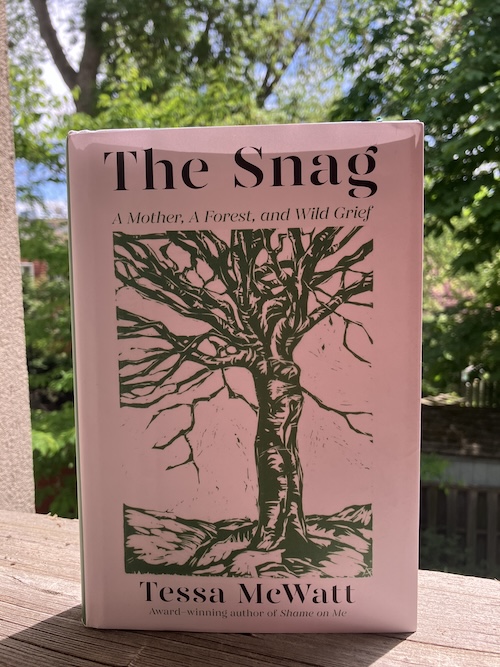
The Snag: A Mother, A Forest, and Wild Grief, by Tessa McWatt, the Guyanese-Canadian writer who lives in England, is a memoir woven of climate grief, the experience of slowly losing an aging parent, and one’s own experience of being in the world. How do we live? And how do we die? Which, of course, is mostly the very same question, and McWatt finds that the answer might lie in forests, and trees. In particular in the trees called “snags,” which are dead trees found in the forest and vital sites for biodiversity, a habitat for all kinds of creatures, and new life and possibilities. McWatt sees an analogy between snags and her own mother, whose dementia is worsening. The book begins on the day that her mother is moving out of her own home, one more uprooting in a life that’s been full of them. It is also, McWatt notes, “the last day of the hottest year in recorded history,” and she recounts a series of the catastrophes wrought by climate change over that year, plus an autumn that so much war and devastation.
“Grief arrives out of rupture. It is evidence of something treasures, now lost. If I sit with this evidence something else will surely come, the way a seed might eventually grow a tree. We are small and hungry and alive.”
Here is the thing that I love about this book, McWatt’s acknowledgement that grief must be sat with, but that also that this sitting is not the end of it. That something can come after this, and it will, but what? And once again, the answer is in the forests and the trees.
The Snag is one of the wisest books I’ve ever read, a memoir about observing, and listening, about music and singing, about the wonders of forests and what we can learn from them about connection and how to care for each other.
“Another world is possible. The extractive, consumptive way we are living demonstrates a severe lack of imagination. But we have the tools, models we use to reclaim, renew, invent. There are communities around the world still rooted, still defending their ecosystems, that are potent sites of resistance. And there are new ones being born.”
May 16, 2025
Encampment, by Maggie Helwig
Maggie Helwig—Toronto poet and novelist, human rights activist, and also Anglican priest at St. Stephen-in-the-Fields in Kensington Market, just a few minutes walk from my house—isn’t preaching to the choir when I pick up her new book, Encampment: Resistance, Grace, and an Unhoused Community. It’s not politically fashionable in the circles in which I travel, but my feelings about homeless encampments have often been complicated and less than generous over the last five years. I know how I’m *supposed* to feel—the “I Support My Neighbours in Tents” signs that others installed on their front lawns signal that direction, but I have a hard time conjuring that support, sustaining it. It works in theory, I guess, but then I show up at the park with my kids and the people living in the tents along its perimeter start screaming at each other and it’s disturbing and frightening. And I have a hard time too with being told that my discomfort doesn’t matter, that my complicated feelings are morally dubious, and that the politics behind any of this are simple, that this is simply a case of rich homeowners versus everybody else, as encampments grow and those of us without our own backyards lose access to public parks and green spaces.
And what I appreciated about Encampment is that there was grace for that, for my complicated feelings and frustrations, just as there is grace for the people screaming in the park, and the people who’ve made their home in the encampment in the St. Stephen’s churchyard over the last few years, and so many others. Maggie Helwig’s capacity for grace is absolutely awe-inspiring, and I read Encampment wishing desperately that the world would give the woman a break. Her own challenges and struggles are woven into the text as well, which underlines just how much she needs a break, but also how her refusal to compartmentalize human experience—that of herself and of others—is where her compassion comes from. Humans are messy and hard. Community is messy and hard. Systems are broken, and what else can we do but try to love one another the best we can?
There is a woman in this book who might be me. (I suspect that, no matter who you are, you will see yourself in many of the people in this book.) That woman is a neighbour who stops Mother Maggie one chaotic day in the parking lot. She’s frustrated by some of the encampment residents, she is afraid of violence, but mostly she is angry because she never wanted to be somebody who turned against vulnerable people. And Helwig writes, “Because it is terrible, and it shouldn’t be like this, and coming up hard against the truth that we live in a society that will dump people like garbage on the side of the road, and there is no good thing we can do, is an awful moment for anyone who hasn’t been through it yet.”
Those of us who live in a world where people are well and housed and healthy and stable have no inkling of what life is like for those beyond those limits, and Encampment rectifies that, explaining away the myths of homelessness, dismissing easy solutions—couldn’t they just…? If only…? The most powerful part of the book for me was when Helwig writes about stuff, possessions: “Maybe this is a good time to talk about the relationship that people have with things, and how far it is really just an inflection of our whole society’s relationship with things.”
And it’s this refusal to see any difference between neighbours, regardless of their housing, that makes Helwig’s voice and vision so extraordinary, and what makes Encampment such a necessary, clarifying, and life-changing read for so many of us right now. Some of the most frightening characters in the book are people with six figure incomes and roofs over their heads, not the guy unconscious in the doorway. Helwig writes, “The true, terrible threat is that, if you just one let these people get too close, you might learn that, underneath it all, we actually are the same. Poor bare forked animals in King Lear’s storm, in a world that’s always ending.”
